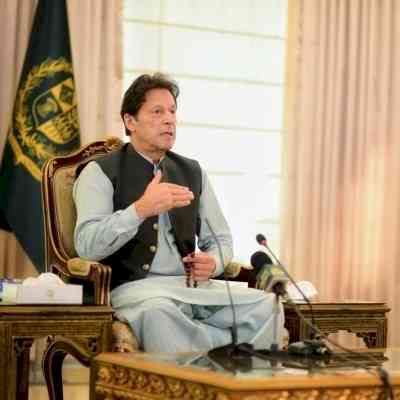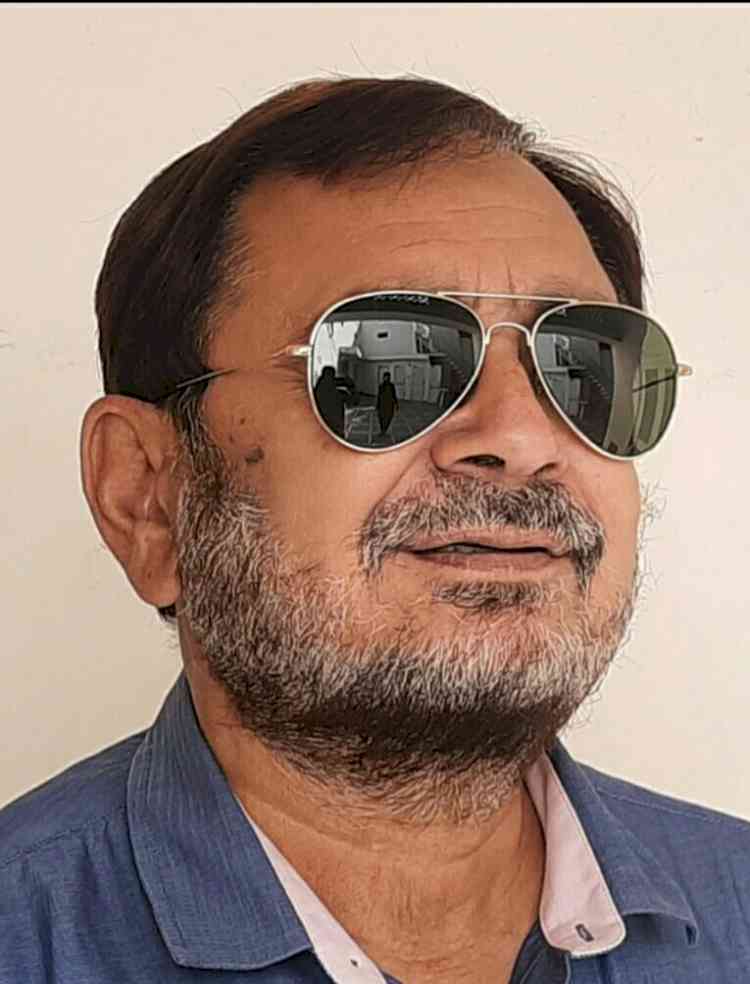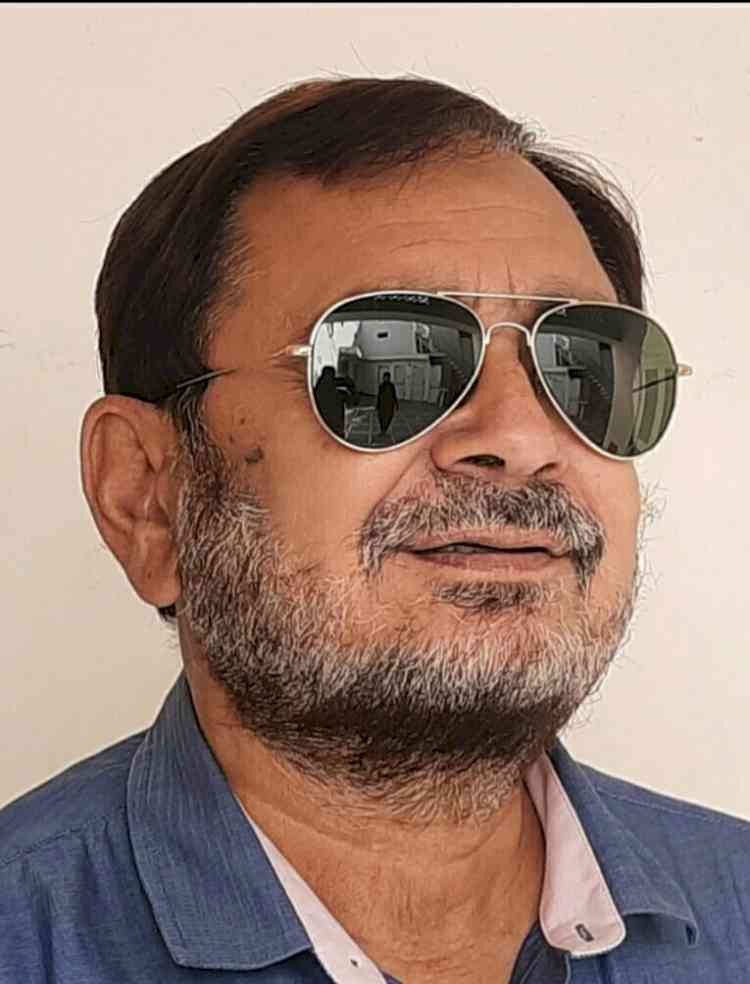Pakistan pushing communalism on the global stage (Opinion)

By DC Pathak
The die is cast in Afghanistan with President Ashraf Ghani fleeing Kabul as anticipated -- the speech that he delivered only a day earlier calling upon the Afghan national forces to stand up to the Taliban, had an air of unreality about it. This coincided with the US making last minute plans of evacuating its diplomats and other functionaries from Kabul in the face of the Taliban's arrival at the airport as well.
President Biden - to his credit - never had any doubt about the policy of withdrawing American troops from the quagmire of Kabul -- that he is running into criticism from his predecessor Donald Trump for abandoning Afghanistan 'in defeat' is one domestic fall out of that decision. Afghanistan once described as the 'geographical pivot of history' is reliving the era of the Great Game but in an entirely new geo-political context.
The democratic world must grasp this new setting marked by the after effects of the 'war on terror', a deficient US understanding of the new strategy of Pakistan of using Islamic extremism as an instrument of its foreign policy and the tilt of many in the leadership of the Muslim world against the Americans in the backdrop of a rising bipolarity between the US-led West and the world of Communism led by an ambitious China, on the lines of a new Cold War.
The Pak-Afghan belt can be ignored by the US as an avoidable headache but sooner than later the latter will have to deal with the global repercussions of the rise of Islamic radical forces. For India a heightened threat can be seen in the short term itself because of the rapid advance of this faith-based militancy and the explicit or implicit support it was receiving from within the Muslim world. A few happenings around us deserve a closer look from our strategic analysts.
One is the speech of Prime Minister Imran Khan at Karachi on August 10, in which he made an extraordinary but unsurprising remark that Pakistan must develop resorts and destinations for holiday makers from the Muslim world since it had become difficult for the latter to go out to European and other Western countries with their wives and children as tourists.
He clearly charged Europe with having developed an Islamophobic mind set and causing problems for Muslim tourists. Significantly he emphasised that Pakistan would provide such visitors an environ that was culturally suitable for them as it would 'combine tourism with Deen'.
Imran Khan has more than once said things that confirmed his being a fundamentalist at heart but this was a first in terms of an open advocacy of faith-based identity of the Muslim world internationally and an assertion that Islamic values would prevail in all spheres of dealings between the Muslim countries and the rest of the world.
The reference to Europe having become unsuitable for Muslim tourists is somewhere an acknowledgement of the backlash that had been witnessed there after cases of terror attacks by Islamic radicals had been reported in Belgium, France and even England in recent times.
Imran Khan who politically represents Khyber Pakhtunkhwa, the home ground of the Taliban, has found fault with the US role in the 'war on terror' and refused to criticise Islamic extremism or terrorism perpetrated in the name of faith.
The US-led democratic nations cannot afford to ignore the unhindered movement of the Muslim world towards religion-based militancy endorsed even by the educated political leadership represented by the Pak Prime Minister - in a language that belonged to the Wahabi Ulema.
Further, one main reason why this rising threat is going unnoticed and unchallenged is the US administration's underestimation of the violent potential of the call of Jehad that Islamic radicals of Taliban, Al Qaeda and ISIS commanding substantive following and social hold in the Muslim world, have raised to confront their 'enemies' - the US-led West being on top of their list.
These forces set an extreme example of the mix of religion and politics but get away with it without the fear of 'rejection' by the wider community simply because Islam - as understood by the faithful - lays claim to all facets of life of a Muslim- personal, social and political and even economic to an extent.
The 'war on terror' steered by the US has revived the historical memory of the 19th century Jehad that the leading Ulema in Algeria, Arabia and India had launched against the Western rulers in furtherance of the political mission of throwing them out of the occupied 'Muslim lands'.
Again, the current developments in Afghanistan are a striking illustration of the collaboration of Pakistan with Islamic radicals. The American policy makers - particularly those at the Pentagon - were still living in the Cold War era so far as their evaluation of Pakistan - the then frontline ally of the US - was concerned.
They seem to be overlooking the mercurial change that the Army controlled Pak regimes had shown on the vital issue of becoming a part of the US-led world coalition that had launched the 'war on terror' following 9/11. Pakistan's role remained highly ambiguous in the crucial matter of not letting Taliban -- anchored in their home base in NWFP (renamed as Khyber Pakhtunkhwa) -- run the radical outfit's operations in Afghanistan.
By acknowledging Pakistan's help as a 'mediator' between US and Taliban for facilitating peace talks at Doha, the Pentagon made it easy for Pakistan to be on the right side of both Americans and the Afghan Taliban and pursue its objective of acquiring a hold in Afghanistan for maintaining its 'strategic depth' against India in the region.
The US has disregarded the fact that Taliban and Al Qaeda were hand-in-glove in running the Afghan Emirate installed by Pakistan at Kabul in 1996 and that the Pak assurance that Al Qaeda will be made totally ineffective against the US by the Afghan Taliban looked so artificial.
It was interesting therefore to find that the US Defence Secretary Lloyd Austin in his telephonic talk with Gen. Qamar Javed Bajwa - Pak Army Chief - on August 9, discussed the ongoing situation in Afghanistan, regional security and stability and more importantly the 'bilateral' defence relationship.
In what seemed to be a bid to humour Pakistan, Austin promised to continue improving the US-Pakistan relationship and build upon 'our multiple shared interests in the region'. In utter disregard of the situation of total flux created by the advance of Taliban against the Afghan national forces, the Biden administration gave up on Afghanistan on the plea that 'Afghans must fight out' the Taliban and desperately looked to the Pakistan army to 'restrain' the Taliban from going after the American assets in Kabul - conceding the fact that the latter was on a grid of faith with the Islamic radicals.
Moreover, the character of Taliban as a fighting force was scantily understood by the democratic world supporting the US in its 'war on terror'. The call for Jehad makes the individual Mujahid a war machine as he is prepared to go down fighting 'in defence of Islam' - he is in effect like the member of a guerrilla army. The anti-Soviet armed campaign was fought in a Jehad mode and the Mujahideen unleashed an 'asymmetric war' which the Soviet army - weakened by the economic burden- had not really foreseen.
Today's Taliban has imbibed the terrorist methodology of taking to covert offensive to redouble the impact on the opponent. Islamic radicals presume their commitment to the cause of faith brought them passive support of the Ummah and they further ensure this by selectively dealing with the 'agents of the enemy' with a brutal display of punishment. In the Pak-Afghan belt they had the advantage of operating on their home ground- their action of releasing fellow Afghan militants from the Kandahar jail as soon as that capital city was seized, showed that their mindset was that of a 'liberator'.
Pak Prime Minister Imran Khan described Afghanistan as the land of 'our brothers in faith' and openly took the line that President Ashraf Ghani had to talk to Taliban with a sense of 'acceptability' if he wanted to avert 'a civil war' in his country. With Russia, China and Iran taking to their own devices to handle a Taliban-dominated regime in Afghanistan and the US just pulling out of the quagmire there, it falls on the world community believing in democracy to not let the faith-based militancy blowing out of the Muslim world particularly the Pak- Afghanistan region, put the former in jeopardy.
It seems the UN was - because of the lukewarm US approach- not pursuing any peacekeeping mission on Afghanistan actively. India has to strategise against the long range danger that a Taliban dominated rule at Kabul enjoying support from Pakistan, would pose for us. It is appropriate that India has expressed its opposition to a regime forcibly established at Kabul. But we have to be prepared for the worst case scenario.
The rise of a new kind of geo-politics in which there is not only the familiar political polarisation between the US-led democratic world and the world of Communism now led by Xi Jinping's China - aspiring to become the second superpower - but also a distinct antagonism between the West and the Muslim world that was falling more and more in line with the forces of radical Islam, is a phenomenon that has to be deeply examined.
This latter conflict is rooted in the historical memory of an anti-West Jehad as mentioned earlier but is now reinforced as an entirely new political antagonism in which a fundamentalist Pakistan and the 'godless' regime of China today have a strategic alliance. Incidentally, the Ayatollah-run Iran is also, in today's context, more inclined towards China because of the anti-West ideological legacy of Shia fundamentalism that remembered Caliph Ali for glorifying poverty and sacrifice.
The only balancing factor from the Western angle is that Sunni radicals go hammer and tongs against the Shias as well. The Pak- Afghan entente on the whole has the potential of queering the pitch for Western democracies because the region has shifted gears - from being an ally of the US-led West in the Cold War era to becoming a stronghold of anti-US politics in the days of the 'war on terror'.
The future of South Asia is impacted in the short run creating a challenge for India but in the long term a distinct political convergence between Islamic extremists and the Communist autocracy with their 'give and take', may affect the global geopolitics at large in ways not envisaged so far.
(The writer is a former Director of Intelligence Bureau)


 IANS
IANS 








